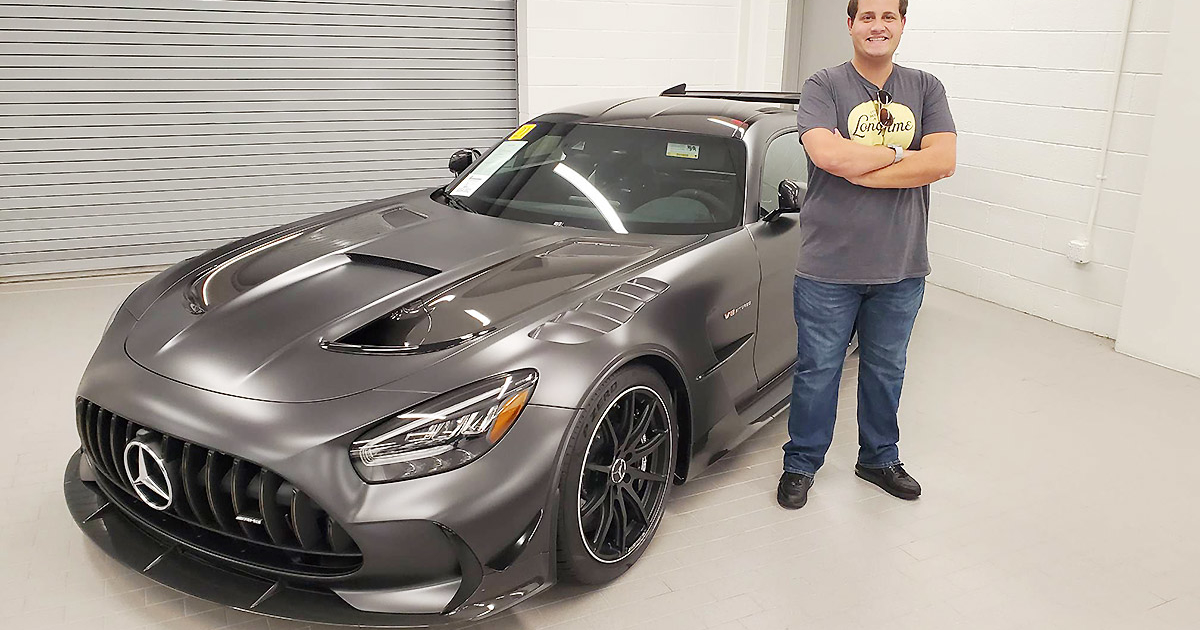
Nathaniel Dillard, 23, the youngest world-class technician ever, knew when he got his first vehicle that it was up to him to get it running.
The Martinsburg, W.Va., native started working on cars when he was 8 years old with his father, who was in the U.S. Air Force. By his teens, the father and son were picking up vehicles on the cheap and getting creative with available parts.
That first car? A model three years younger than him — a 2003 GMC Sonoma.
“I remember replacing the cylinder head. We swapped the truck bed off it from another scrap car that we picked up,” he said. “It was great. It had three different colors on it.”
His first job in automotive was as a lube technician at a nearby Chrysler-Dodge-Jeep-Ram dealership when he was 18. After a year, he transitioned to an independent repair shop, ZZ Auto Service Center, where he started the 22 requisite National Institute for Automotive Service Excellence, or ASE, tests. Once his top certification was assured — at age 22 — Dillard’s value as a mechanic rose exponentially, and he attracted the attention of Akka Technologies, a European automotive engineering consulting company. Today, he works at the Mercedes-Benz plant in Tuscaloosa, Ala., for Akka, where he plans to stay for some time.
Dillard spoke with writer Jackie Charniga. Here are edited excerpts.
Q: How would you describe your current job as a consultant?
A: Diagnosing, analyzing and repairing vehicles for testing purposes as well as for production topics that occur within the assembly process. Say there’s a repeat error or issue that comes up — I’ll be the person that would investigate that. I would say quality control or quality management is how we refer to it.
How does your certification play a role in that job?
It helps a lot. My specialty is electrical; however, these cars, as they’re more and more computerized, you’ll have exterior panels that are motorized. The upcoming release on some of these cars will be automatic doors. You wouldn’t think of doors being automatic. So when it comes to your exterior certification, for example, your panel gap finish, that’s where those fit in.
Your career began in traditional franchise dealerships and in independent shops. How would you differentiate those experiences?
When it came to the dealership, I liked the consistency in the work. You had more specialized tools and worked with a specific manufacturer. The 2017-18 model year cars were just coming out. I was doing oil changes, making sure the tires were inflated. I’d made friends with the sales guys, but there definitely was a degree of separation, even within the back. The lube shop was a separate entity from the main shop, but the parts shop was attached, and there was dissonance between us and the parts guys. You were, in their eyes, the lowest of the low. But being 18, I kept my head down. By the end of it, I made my way up to the main shop.
In the independent shop, there was more flexibility in the kind of work I was doing. It allowed for more growth. When I started, I was just a technician. But by the end of one year, I was a foreman and service manager. I was the person that would correct the tickets and get the more difficult vehicles first.
The National Institute for Automotive Service Excellence celebrated its 50th anniversary last October. In a conversation with Automotive News, Trish Serratore, senior vice president of ASE, said it’s a challenge convincing young technicians to pursue certification. What prompted you to pursue not just certification, but world-class certification?
As a young person, I heard about it originally at the dealership. Now, the dealership is not going to push toward ASE compared to the independent shops because they’re going to point toward manufacturer-specific certifications and training. An independent shop, however, can advertise they have an ASE-certified employee working there. I’m not sure the everyday person knows what ASE certification means. But when they see that posted on the outside of a shop, it tends to bring some legitimacy. A lot of people don’t have the trust that they do with manufacturing shops.
Your former boss, Wallace Parrish at ZZ Auto Service Center, paid for three tests, but the rest you paid for out of pocket. These tests aren’t cheap. How did that shape your trajectory within automotive service?
When it comes to young people, I can’t really say how to get them into an automotive shop, but incentivizing these certifications would play a big part. It did with me. I was told that I’d be getting more money in the future with these certifications. With each one I got, [Parrish] did do an extra dollar toward my hourly rate. When you’re 18, 19, that’s a big deal. If you look at the market analysis for someone who is ASE tech certified vs. someone who’s not, there’s a big gap — like someone is making $30, $35 per hour flat rate compared to someone making $17, $18 just coming in or who might be without the certification or background.
Would you ever return to a dealership or an independent shop?
Honestly? I hate to say it, and no fault from them, but my future is within research and development. My experience at [dealerships and independent shops] helped me so much with achieving those goals. Do I have any ill feelings within that industry? No. But for my personal goals, no.